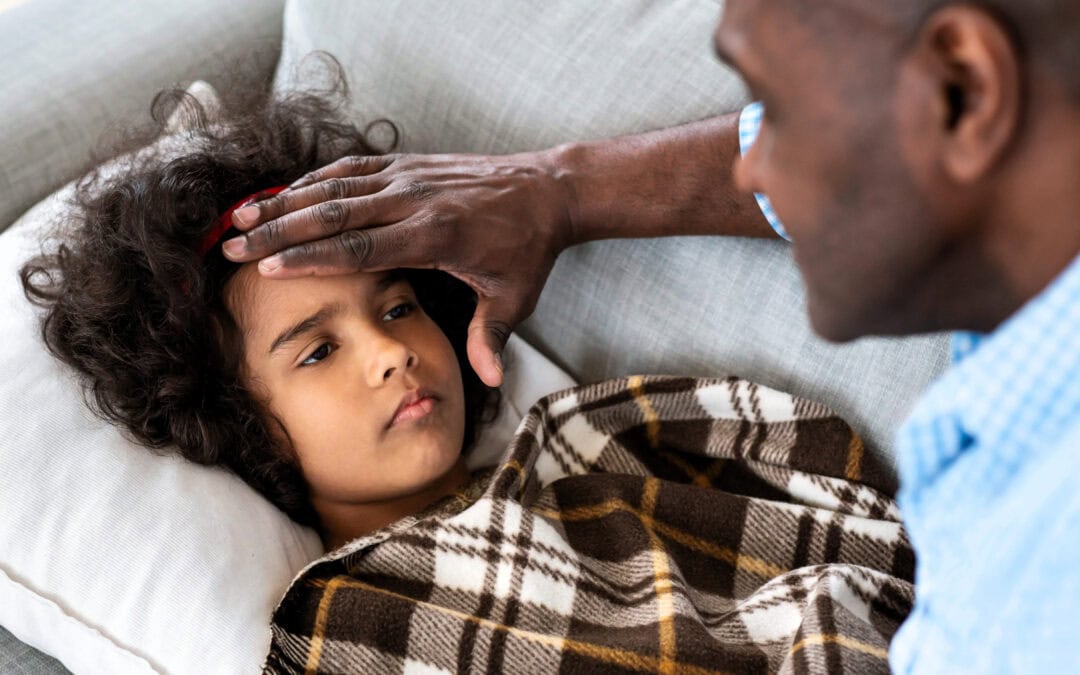Deciphering the signs when your child is unwell can often feel like navigating through a maze without a map. Is it just a common cold that needs some rest and chicken soup, or is it something more serious that requires immediate medical attention? Recognizing when to seek help from a pediatric urgent care clinic is crucial for parents who are on the front lines of their child’s health and well-being.
Understanding the Common Cold
The common cold is a frequent visitor in households with children, characterized by a runny nose, cough, and mild fever. However, distinguishing between a harmless cold and symptoms that could indicate a more severe condition is essential. According to the Centers for Disease Control and Prevention (CDC), most colds in children are relatively harmless and resolve on their own. (CDC)
High Fever
A high fever in a child can be alarming. While a low-grade fever might simply suggest the body is fighting off an infection, a fever above 102°F (38.9°C) can be a sign of a more serious infection or condition. The American Academy of Pediatrics recommends seeking medical attention if your child has a high fever, especially if it’s accompanied by symptoms like rash, difficulty breathing, or persistent crying. (American Academy of Pediatrics)
Difficulty Breathing
Difficulty breathing or respiratory distress in children is not something to take lightly. Signs to watch for include rapid breathing, flaring nostrils, wheezing, or the chest retracting with each breath. These symptoms require immediate attention from a healthcare professional. Pediatric urgent care clinics are equipped to assess and manage such respiratory symptoms, providing timely intervention.
Unusual Lethargy
Unusual lethargy or tiredness in your child can be a red flag. If your child is too weak to play, unusually drowsy, or not responding in their typical manner, it might indicate an underlying issue that needs urgent care. The Mayo Clinic outlines lethargy as a potential sign of serious infections or conditions that warrant medical evaluation. (Mayo Clinic)
Persistent Pain
Persistent pain, whether it’s an earache, sore throat, or abdominal pain, can sometimes be a symptom of a condition that requires more than just over-the-counter medication. For instance, an ear infection might need antibiotic treatment, while severe sore throat could be strep throat, which also requires antibiotics for treatment. Pediatric urgent care clinics can provide a quick diagnosis and treatment plan, alleviating your child’s discomfort faster.
Rash or Swelling
Rashes or swelling can often be a puzzle for parents. While many rashes are harmless and resolve on their own, certain types, such as those accompanied by fever or difficulty breathing, may indicate a more serious condition. The American Academy of Dermatology Association provides guidance on when to seek medical help for a rash. (American Academy of Dermatology Association)
When to Choose Pediatric Urgent Care
Choosing between a visit to the emergency room and a pediatric urgent care clinic can be confusing. For non-life-threatening emergencies, pediatric urgent care clinics offer a more specialized, efficient, and often less stressful environment for both children and parents. These clinics specialize in treating children, ensuring that care is tailored to the unique needs of younger patients.
Pediatric urgent care clinics are an invaluable resource for parents dealing with after-hours sickness or when their primary pediatrician is unavailable. They bridge the gap between regular doctor visits and emergency room services, providing care for a wide range of illnesses and injuries.
Recognizing the signs that necessitate a visit to a pediatric urgent care clinic is a vital skill for every parent. From high fevers and difficulty breathing to unusual lethargy and persistent pain, understanding these signs can ensure your child receives timely and appropriate care. Pediatric urgent care clinics play a crucial role in the healthcare landscape, offering specialized, accessible care for our youngest patients.
The decision to seek urgent care for your child is guided by the severity and nature of their symptoms. Trusting your parental instincts, coupled with knowledge of the signs that require medical attention, can make all the difference in ensuring your child’s health and peace of mind.
Key Takeaways for Parents on Pediatric Urgent Care
- High fevers, difficulty breathing, unusual lethargy, persistent pain, and certain rashes are significant signs your child may need urgent care.
- Pediatric urgent care clinics provide specialized, timely care for non-life-threatening conditions, often with shorter wait times and a more child-friendly environment than emergency rooms.
- Recognizing when to seek urgent care can ensure your child receives the best possible treatment without delay.
Frequently Asked Questions
What is considered a high fever in children? A fever above 102°F (38.9°C) is generally considered high and may require medical evaluation, especially in the context of other symptoms.
Can pediatric urgent care clinics handle serious conditions? While pediatric urgent care clinics are equipped to handle many acute conditions and injuries, life-threatening emergencies should always be directed to a hospital emergency room.
How do I know if my child’s rash needs medical attention? If a rash is accompanied by fever, difficulty breathing, or if it spreads rapidly, it’s important to seek medical evaluation promptly.
Should I take my child to urgent care for a sore throat? Yes, if the sore throat is severe, persists for several days, or is accompanied by fever, headache, or stomachache, it could be strep throat or another condition that requires medical treatment.
What are the advantages of using a pediatric urgent care clinic? Pediatric urgent care clinics offer specialized care for children, often with shorter wait times and a more comfortable environment for young patients than emergency rooms.

